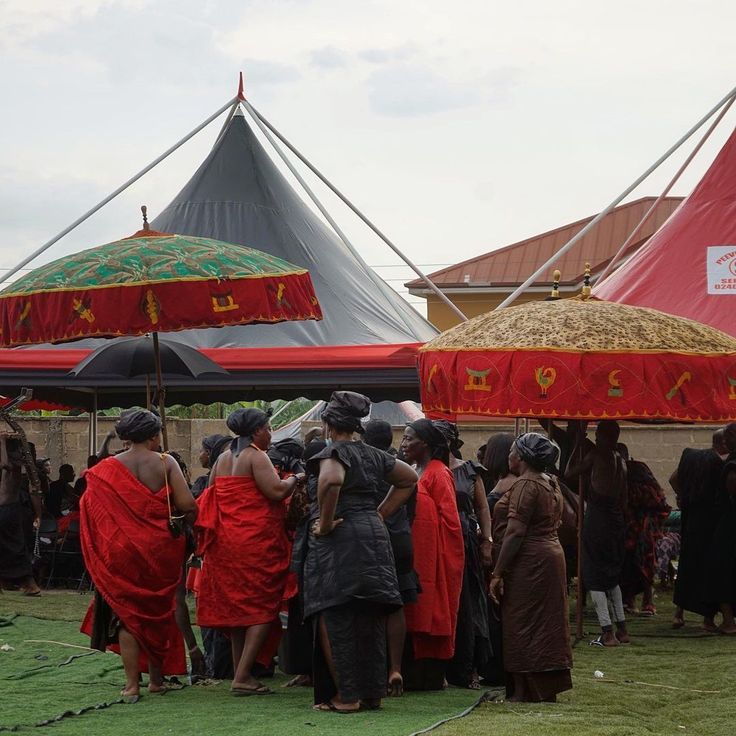In Ghana, funerals are more than a final goodbye—they are celebrations of life, deep cultural expressions, and a way for communities to come together. One of the most distinctive aspects of Ghanaian funeral customs is the “One-Week Celebration”, a tradition that blends mourning with memory, grief with gratitude.
In this post, we’ll explore what the One-Week celebration means, how it’s performed, the cultural values behind it, and how this rich tradition is adapting in modern Ghana.
What Is the One-Week Celebration?
The One-Week Celebration is a memorial gathering that takes place exactly seven days after a person’s death. It’s held to mark the end of the first week of mourning and to officially inform the extended family, community, and public about the death.
It is not the funeral itself but a precursor—a space to grieve, plan, and honor the memory of the deceased.
Why the “One-Week” Timing?
Ghanaian culture holds the number seven as sacred—a symbolic period for reflection and preparation. The belief is that after seven days, the spirit of the departed begins its journey to the ancestral realm.
This also gives family and community members enough time to:
- Notify extended family.
- Start funeral arrangements.
- Offer condolences and support.
Key Elements of the Celebration
1. Gathering of Family and Friends
Relatives, friends, and neighbors gather at the family home or an agreed location. It can range from a few dozen people to hundreds, depending on the status and age of the deceased.
2. Mourning Colors
- Red and Black are worn to signify grief and loss.
- If the deceased was aged or highly respected, black and white may be worn instead, symbolizing a celebration of a life well lived.
3. Announcements and Donations
- A formal announcement of the death is made.
- Family and friends may offer monetary contributions (commonly called “nsawa” or “donations”) toward the funeral costs.
4. Prayers and Libation
- Christian, Islamic, or traditional prayers are said.
- In traditional settings, libation is poured to honor the ancestors and guide the spirit of the deceased.
5. Food, Music & Drinks
- Local food like jollof, waakye, or fufu is served.
- Music (sometimes live bands or DJs) is played—though not overly celebratory.
- Alcoholic and non-alcoholic drinks are shared.
6. Photo Display & Funeral Poster Reveal
- A framed photo of the deceased is often displayed.
- The official funeral poster and program details (date, venue, attire) are revealed during the event.
Regional and Ethnic Variations
- Akan (Ashanti, Fante, Akuapem): One-Week celebration is a major event, often held at a community center or church grounds.
- Ewe and Ga-Dangme: Similar memorials may be held, but names and rituals differ slightly.
- Muslim Families: Though Muslims may perform du’a prayers instead, they might also observe a form of the One-Week as part of the broader community norms.
Modern Influences & Changes
The One-Week Celebration has evolved with time:
✅ Event Rentals: Tents, chairs, sound systems, and even MCs are now used.
✅ Social Media Livestreams: For relatives abroad, celebrations may be streamed online.
✅ Uniform Cloth (Funeral Wear): Families design custom cloth with the deceased’s face or name.
✅ Photography & Video Coverage: These events are now professionally documented.
Cultural Significance Today
The One-Week Celebration helps the family:
- Transition emotionally from initial shock to acceptance.
- Receive support from community members.
- Raise funds and finalize funeral logistics.
It also reminds us of Ghana’s deep communal values—grief is never carried alone.
The One-Week Celebration is one of Ghana’s most unique and moving cultural practices. It balances mourning with communal strength, sadness with solidarity, and tradition with adaptation. Whether you are Ghanaian or a curious traveler, understanding this tradition offers deep insight into how Ghanaians honor the dead and celebrate life.

